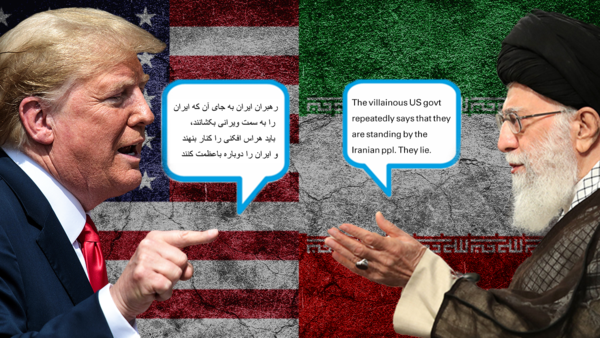A Twitter official said on Wednesday that Iranian Supreme Leader Ayatollah Khamenei’s calls for the genocide of the Jews do not violate the social media platform’s rules.
A Knesset committee was stunned to learn on Wednesday that while tweets from President Donald Trump are flagged with warning labels by the social media giant, those calling for the destruction of Israel by Iran’s Supreme Leader Ali Khamenei are not.
Speaking with Israel’s Knesset Committee for Immigration, Absorption and Diaspora Affairs, Ylwa Pettersson via video conference, Twitter’s head of Public Policy and Philanthropy for the Nordics and Israel, said, “We have an approach toward leaders that says that direct interactions with fellow public figures, comments on political issues of the day, or foreign policy saber-rattling on military-economic issues are generally not in violation of our rules.”
Her remark came in response to international human-rights lawyer Arsen Ostrovsky, executive director of the Israeli-Jewish Congress, asking why Twitter has recently started flagging U.S. President Donald Trump’s tweets, yet not those of Khamenei.
Ostrovsky had queried Petterson about the fact that Twitter has recently started flagging President Trump’s tweets. “Why have you not flagged the tweets of Iran’s Ayatollah Khamenei, who has literally called for the genocide of Israel and the Jewish people,” he asked.
Blue and White Knesset member Michal Cotler-Wunsh then asked Pettersson, “So, calling for genocide is okay, but commenting on politics is not?”
To which Pettersson replied: “If a world leader violates our rules, but if there is a clear interest in keeping that on the service, we may place it behind a notice that provides some more context about the violation and allows people to click if they wish to see that type of content. That is what happened for the Trump tweet. That tweet was violating our policies regarding the glorification of violence, based on the historical context of the last line of that tweet, and the risk that it could possibly inspire harm and similar actions.”
She continued: “And, as it was in the interest of the public to keep that on the platform, we decided to keep it up, place it behind a notice … to limit the interaction with it, but because it is of importance to have it remain so that the citizens can see what their political figures are commenting and hold them accountable for what they’re saying online.”
Cotler-Wunsh was not impressed by this argument, stating: “I think that what’s come up again and again through different examples is actually a sense of double standards, and I would implore Twitter and other online platforms to ensure … that there is no double standard in the application” of rules.
(World Israel News).






